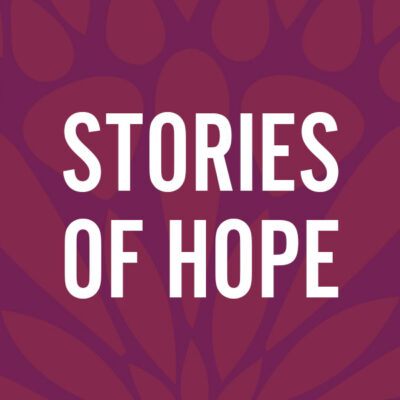Each night at the dinner table when I was growing up, my stepfather would ask us: “What have you done for the common good today?” I realize now that his nightly question—along with my mother’s work as a teacher, education advocate and volunteer—instilled in me an obligation to repair the world. This obligation is an essential part of my identity as a Black, Jewish woman: I was taught that whatever privileges I have can and should be harnessed to create a better world for everyone.
This obligation might seem futile, as rising nationalism, unapologetic white supremacy and misogyny echo around the world. But we don’t need to dig too deeply to find sources of hope that reinforce the idea that a better world is possible.
Around the globe, we see activists working to confront these challenges. We see their hard work and courage, traits that are born of hope and create hope at the same time. We see these qualities among the women who take to the streets of Iran to protest discrimination and violence. We see it among Ukrainians fighting for their country, and among young people who are working against the clock for climate justice. And in my work as a member of AJWS’s Board of Trustees, I see this determination among the activists AJWS supports around the world who do not despair despite the injustices they face—even at the hands of the very governments meant to represent them.
The late Czech statesman, writer and dissident Václav Havel describes hope as:
“A state of mind, not a state of the world… It is an orientation of the spirit, an orientation of the heart… Hope is the ability to work for something because it is good, not just because it stands a chance to succeed. It is not the conviction that something will turn out well, but the certainty that something makes sense, regardless of how it turns out.”
The activists working to repair our world embody this kind of hope: They fight for what is right and persist in pursuing justice not knowing if their work will succeed. But it often does, even if it takes a long while.
I witnessed this firsthand when I traveled to Mexico with AJWS in 2015 and met activists working with Flor y Canto, a group that supports Indigenous farmers fighting for the right to sustainably manage their own water resources. For years, Flor y Canto fought alongside Indigenous Zapotec communities as they faced decades of droughts, crop failures and abject discrimination by their government. Mexico’s national water authority overcharged and barred Indigenous communities from using water, but all the while provided ample and affordable water to nearby mines, industrial farms and hotels.
Despite the daily injustices, indignities and even threats to their safety, these activists did not desist. While they fought their battle at the national level, they also planted trees and dug deeper wells. The aquifers were replenished. And finally, in 2021, these Indigenous communities won the right to manage their water.
The way that AJWS’s support fuels long-term fights for justice has inspired and informed my own professional and volunteer work. As a grantmaker at California Health Care Foundation, I too focus on problems that will take years or decades to solve—issues like achieving health equity for Black people and securing high-quality care for people with both mental illness and substance use disorder. While these problems will not be solved overnight, it’s my job to help make incremental progress in the short term—and work to transform inequitable systems in the long term.
I believe that offering communities facing systemic oppression immediate relief while also working with them to change the systems that oppress them is the best way to make progress and maintain hope in the long run.
I first engaged with AJWS because, as a Black Jew and mother, it gave me and my children an avenue to express our Jewish values while supporting people in the Global South—people of color, like us—as they organized for their human rights. But since then, being involved with AJWS has become more than an avenue to express my Jewish values; it has shaped how I think about my approach to repairing the world. I know that it is vitally important to work in collaboration with communities experiencing inequities and to take the long view, being both persistent and patient.
AJWS’s work helps me believe these words from Dr. Martin Luther King Jr., that “We shall overcome because the arc of the moral universe is long, but it bends toward justice.”
Believing those words is a critical first step in bringing about social change. We also know that change doesn’t just happen on its own, but we must all add our weight to help bend that arc. Pirkei Avot—The Ethics of Our Ancestors—provides us with this wisdom: “You are not obligated to complete the work, but neither are you free to desist from it.”
I am honored to be part of this community transforming hope into action—and even prouder to see my own children continue to carry these values into the future.
Katherine Haynes is an AJWS Board Member



